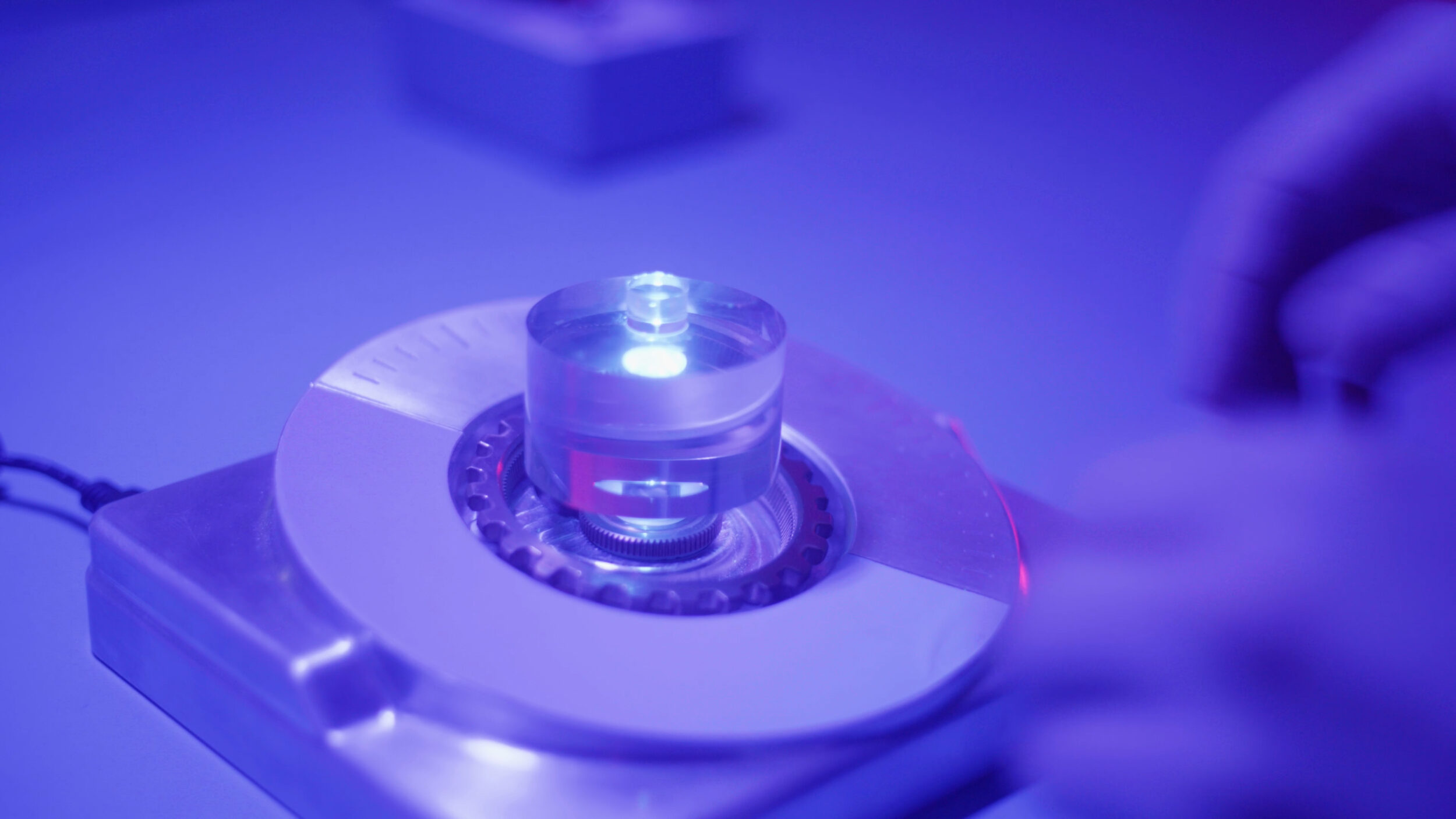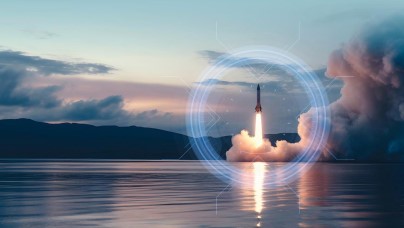Breakthrough Technologies 2024
Posted August 26, 2024

From the depths of the ocean to the far reaches of our galaxy see which technologies, built and deployed out of Lot Fourteen, are impacting and changing the world for the better.
In South Australia, we are developing world leading technology including hydrogen power, the most accurate clocks in the world and quantum computing. These key innovations have the potential for radically changing our lives. Here we deep dive into five companies doing awesome work at Lot Fourteen.
Remote sensing and AI
Remote sensing coupled with advanced processing – AI or machine learning elements – is one way Stone & Chalk company D-CAT is helping customers track and detect greenhouse gas emissions.
As we move towards a net zero economy, provision of critical evidence for carbon and sustainability projects of the actual and measurable impact of carbon offsetting, carbon sequestration is paramount.
D-CAT uses the most advanced spectral, interferometric, image processing and machine learning techniques on satellite imagery (optical and radar), potentially fused with other data, to derive insights about what is on the ground. Example applications include the tracking of biodiversity, land change, tree detection and height mapping, GHG emissions, water quality and land movement. The latter is a good example of marrying synthetic aperture radar (SAR) data from satellites with cutting-edge differential interferometric techniques (DInSAR) to detect even the smallest movements of land or assets.
The company’s Fusion Platform provides data to be delivered at scale automatically, assisting sectors as diverse as finance, energy, utilities, food and agriculture with valuable business insights.
The opportunities are endless, just ask D-CAT co-founder and chief technology officer Dr Moira Smith who has spent her career as an aerospace engineer, working predominantly in defence but now focused on bringing the benefits of this technology to other sectors worldwide, together with those closer to home like Elders and Veolia.

World-leading spacecraft propulsion
Neumann Space has developed one of the world’s most efficient ion engines – a significant feat for a small company who went from lab to space last year and now looking at expanding its business.
Ion engines are low-thrust propulsion systems with a long runtime, perfect for spacecraft flight. In their case, the Neumann Drive® generates thrust by converting a solid metal rod into plasma and accelerating the charged particles using an electromagnetic field.
The Neumann Drive is unrivalled on the market. Its unique metal rods can be made (on Earth and in space) of any solid conductive metals and alloys – including the many tons of various metallic debris already in orbit.
Given that the Drive’s propellant is a solid object that is non-hazardous, solid-state and chemically inert, the product’s main competitive advantage is it simplicity, from manufacturing to in-space operations. Their engine avoids the issues of other technologies using gaseous or liquid propellants, often toxic and expensive, and challenging to operate in the harsh space environment.
Although the physics isn’t new, making it work in space, especially in a CubeSat form factor, requires serious engineering skills. Neumann Space has established a strong team of about 15 engineers at Lot Fourteen and is about to scale up its Manufacturing, Assembly, Integration and Test (MAIT) capabilities to work with local and international satellite manufacturers. Two of their engineers are just back from Denmark and the U.K. where they integrated their propulsion systems into a 6U CubeSat for a European Space Agency project with Space Inventor, and a larger satellite from SSTL (another Lot Fourteen space company).
Without propulsion, there is no space economy. Neumann Space is on a mission to enable the sustainable economic development of space with superior mobility and can’t wait to see its third launch later this year.
Innovation in battery recycling
More consumer electronics and more electric vehicles, means more electronic waste. And that includes batteries. Australia, Europe and the rest of the world are increasingly looking to recycle batteries to recover the critical elements therein, rather than consigning them to landfill.
Iondrive and University of Adelaide are researching the development of a viable, environmentally sustainable, and recyclable, deep eutectic solvent (DES) and other benign, biodegradable organic solvents that selectively recovers critical metal elements from spent Li-ion batteries without the use of corrosive agents.
“The breakthrough innovation of our DES recycling technology lies in its unique ability to differentially isolate and recover metal elements from cathode materials, notably NCM, widely employed in electric vehicle batteries,” says CEO, Ebbe Dommisse. “Moreover, the use of benign organic solvents that are biodegradable in a closed loop recycling process considerably reduces the environmental footprint of a hydrometallurgical process – which is very attractive for EU and USA markets looking for more eco-friendly processes”.
The Battery Stewardship Council reported that in 2017-18 just 6%, or 320 tonnes, of lithium-ion batteries that reached end-of-life were recycled. A stark contrast to 50 per cent recycle rate in Europe.
“Our primary objective is to commercialise the technology,” says Dommisse.
“To this end we have scaled up the technology from laboratory research to large-scale bench trials and in the process of completing a pre-feasibility study to complete a techno-economic valuation and benchmarking study before embarking on a pilot plant project. The fully integrated, continuous closed loop pilot-scale process kicks off in July 2024 and evaluate and develop/optimise the process over a 2-3 year period”.
ASX-listed Iondrive have a Strategic Partnership Agreement with the University of Adelaide with an initial investment of $2.5 million over three years in battery and research development, while several Federal grants have been awarded to co-fund further research activities – to be announced soon.

World’s most accurate ‘clock’
QuantX Labs’ Cryoclock is the world’s most accurate ‘clock’ that delivers the most pure and stable output signal, and is now being manufactured for inclusion into the Australian Defence Forces’ Jindalee Operational Radar Network (JORN). This upgrade will significantly improve detection and greatly increase sensitivity of the radar network, allowing the user to see smaller objects that are further away.
QuantX Labs is actively expanding their product range beyond the Cryoclock, developing unsurpassed quantum sensing capability in underwater and underground environments – by making the water and ground transparent contributing to both ASW and subterranean ISR activities.
Broadening their suite of precision timing, QuantX is also developing the next-generation optical atomic clock that has already demonstrated incredible reliability and precision. This state-of-the-art technology is due to be launched into Low Earth Orbit in 2026.
New cloud accounting tech
Traditional accounting has had a seismic shift in the past couple of decades thanks to cloud accounting systems, with one Lot Fourteen startup part of the revolution.
For Link4, based in the Stone & Chalk Startup Hub, it’s all about a service that streamlines and automates the invoice process for finance teams, ensuring quicker payment. Sending invoices via email is a risk for every business, and the biggest security hole that malicious players target.
Platform-agnostic, Link4 is designed to add-on to current accounting and ERP systems to enable users to send invoices directly into their customer’s accounting systems instantly. Basically, they are a translator that allows the accounting systems to communicate in a safe, secure, real-time environment. This is all done with ground-breaking tech developed in Adelaide and being used across 5,000 organisations in the region. And, thanks to a new a strategic partnership with Oracle NetSuite, Link4 is rapidly building an international client portfolio in new markets.
Link4 now has offices in four countries that currently service customers Australia, New Zealand, Singapore, Malaysia, Norway, Belgium, France and the UK.
eInvoicing is now mandated by the Australian Government, and Link4 boasts more federal government customers than their second and third most popular competitors combined. The Link4 technology meets Peppol eInvoicing standards while using the stability and security of AWS to pass the stringent requirements of governments around the world. The team at Link4 are looking to double in the next 6 months and will no doubt add more countries to their resume as the year progresses.
Read more stories like this on Issue_03 of Lot Fourteen’s Boundless Magazine.
Great things come to those who subscribe
Subscribe
"*" indicates required fields
Adelaide 5000
Developed by Frame Creative
Design by The Sideways Theory
Design by Sixth Street Design
Developed by Frame Creative
© Lot Fourteen All Rights Reserved

